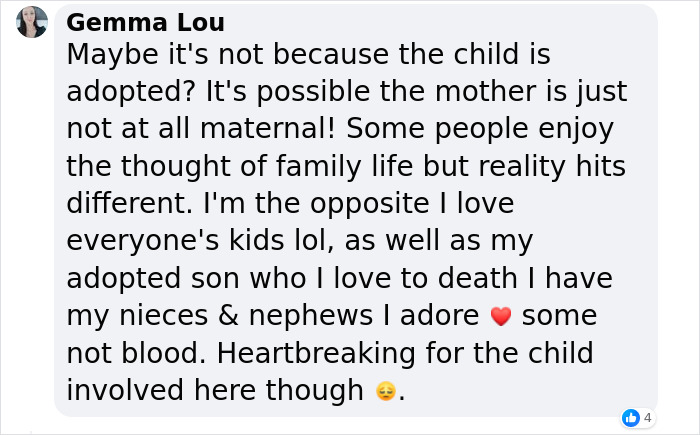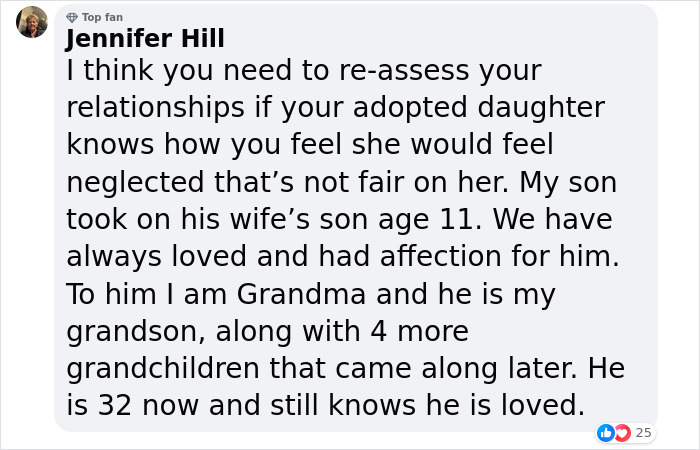Every parent who adopts a child hopes to love them as their own biological kids. However, some folks struggle very much to connect to their adopted children. So much so that they feel extremely guilty about this. Some take to internet forums to share their honest and unfiltered thoughts and to ask for support.
An anonymous woman turned to the r/Adoption online community for help after revealing her true feelings about her adopted daughter. She revealed that she ‘regrets’ adopting her and never felt like she was her own child. Read on for the sensitive story and discussion.
Some parents can have trouble connecting with their adopted children at first

Image credits: LightFieldStudios / Envato (not the actual photo)
One anonymous mom turned to the internet for support because she feels like she loves her biological kids more than her adopted daughter
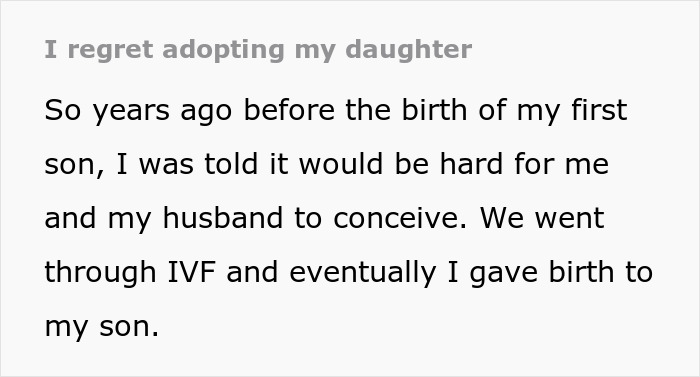
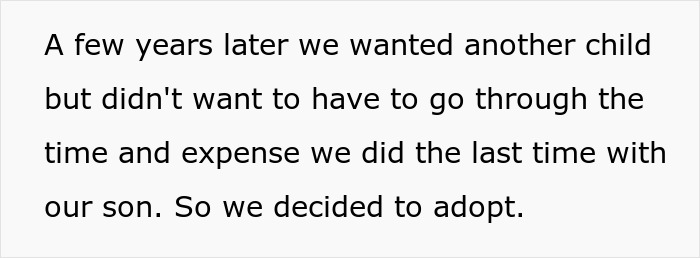
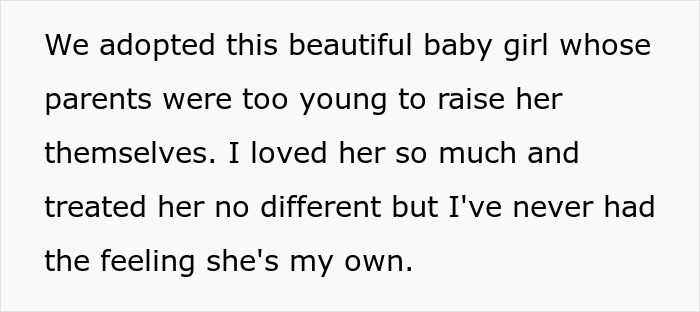
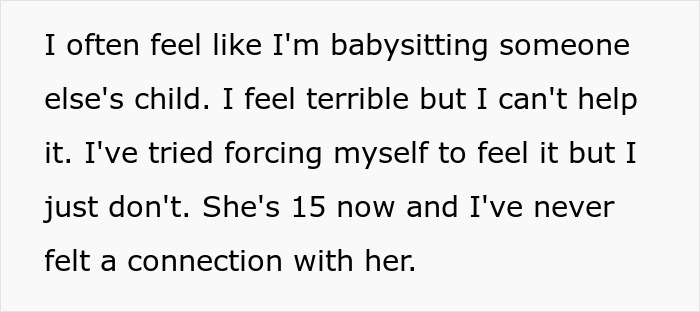

Image credits: GeorgeRudy / Envato (not the actual photo)

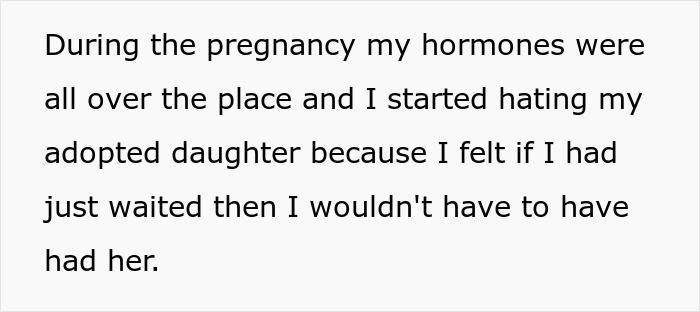
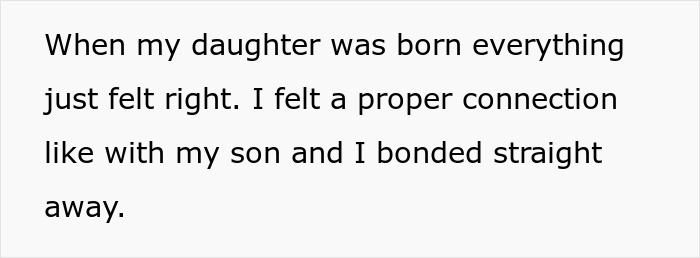
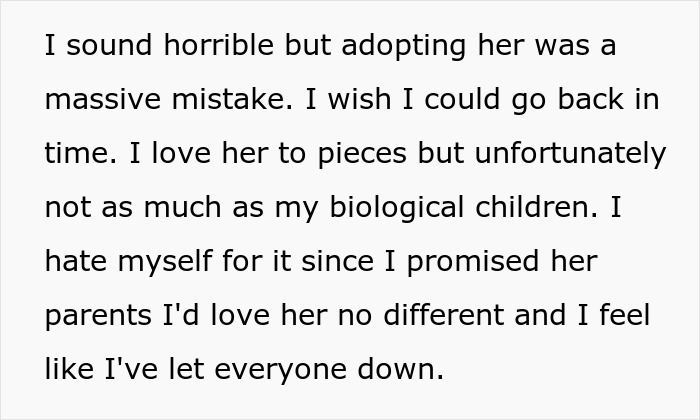
Image credits: throwaway548219573
It’s important to be honest about how we feel, even if doing so is uncomfortable
The OP explained that she feels very guilty about her true feelings. She pointed out that even though she loves her adoptive daughter “to pieces,” she still loves her biological children more.
“I hate myself for it since I promised her parents I’d love her no different and I feel like I’ve let everyone down,” she writes.
A large part of living an authentic life comes down to accepting our feelings for what they are. We have to be willing to embrace our emotions and thoughts even if they feel very uncomfortable. Running away or hiding from the truth is unhealthy.
That being said, we also have to realize the impermanent and subjective nature of our feelings. At times, they may offer us an accurate representation of how we interpret our environments. Other times, they might be more akin to temporary opinions that may be exaggerated interpretations of reality.
With that in mind, we should accept how we feel while understanding that our feelings can change a lot over time. For example, a parent who struggles to connect with their adopted children, given enough effort and time, might find that they finally love them as if they were their biological kids.
That’s far easier said than done. Adoption is a very sensitive issue, and it is difficult to be candid about one’s true feelings out of fear of being judged.
This is why some parents create throwaway accounts and take to anonymous forums to ask for advice—they know that they can be honest without others being too harsh on them. Others simply want to vent or need a kind word or two to get past a tough moment in their lives.
Some adopted children can also have trouble connecting with their new families
Psychology Today explains that older children who are adopted may have experienced trauma or neglect in their lives if they have lived in foster care, an orphanage, or with another family for a long period of time. They may have abandonment or trust issues.
Because of this, they may be distrustful of all adults. This, in turn, leads to difficulties connecting with their adoptive families. However, other children who are scared of abandonment may be far too trusting of all adults.
“Parents should make an effort to learn as much as possible about their child’s history before the adoption, in order to better prepare themselves for their child’s specific needs. In cases where this is not possible, educating themselves about trauma, childhood mental health, and the possible effects of foster or institutionalized care can help parents get a better sense of what to expect,” Psychology Today writes.
However, many adopted children eventually bond with their families, though this can take a long time and may require the help of professional counselors. Trust and love can be built. However, at times, this process is very slow.
If this pace is slower, some parents or children can find the whole situation very emotionally demanding.
Psychology Today also warns that some adoptive parents may suffer from so-called post-adoption depression. This is similar to postpartum depression.
“Parents may question their own legitimacy as a parent, for instance, or worry that they will not bond with their child; these feelings can contribute to symptoms like sadness, lethargy, sleeplessness, anxiety, or guilt.”
The author clarified a few things and shared more context in the comments
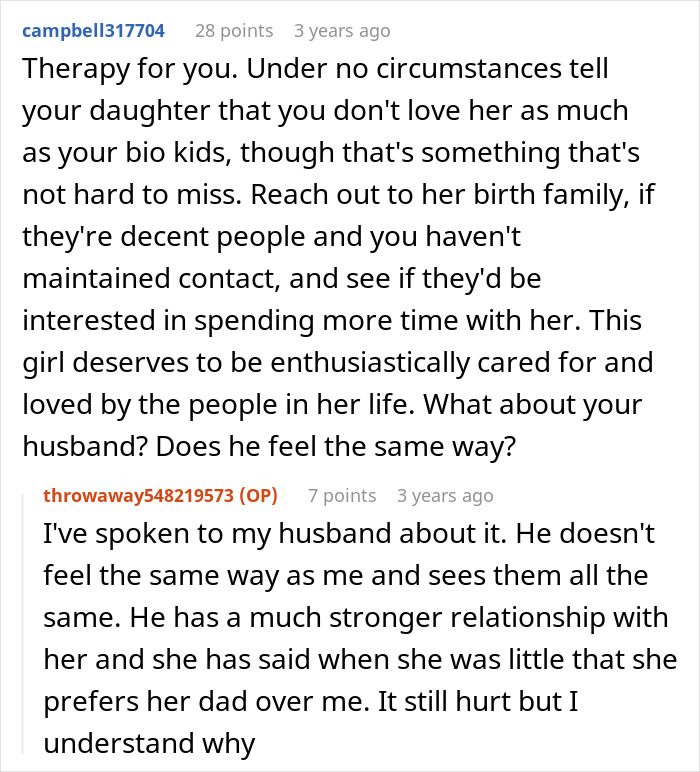
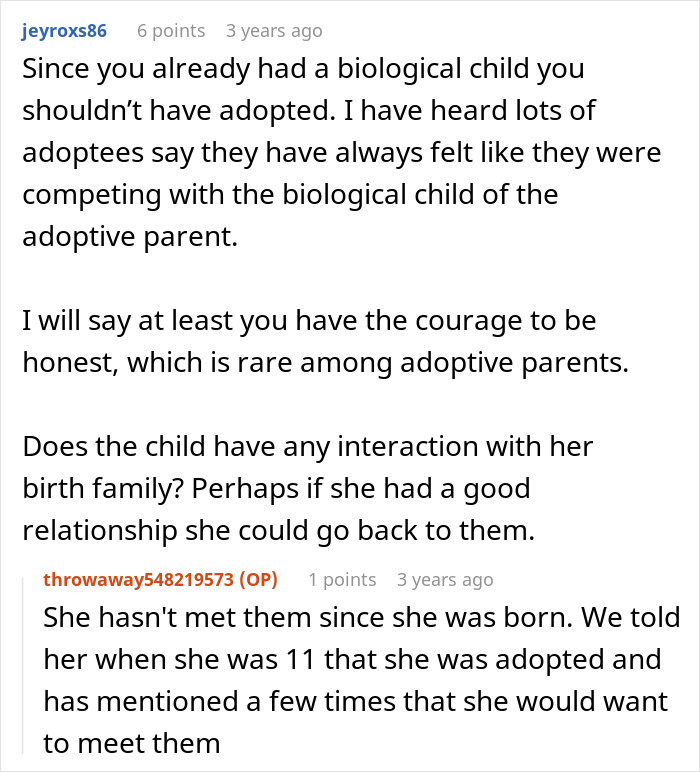
Here’s what some readers had to say after going through the mom’s candid post
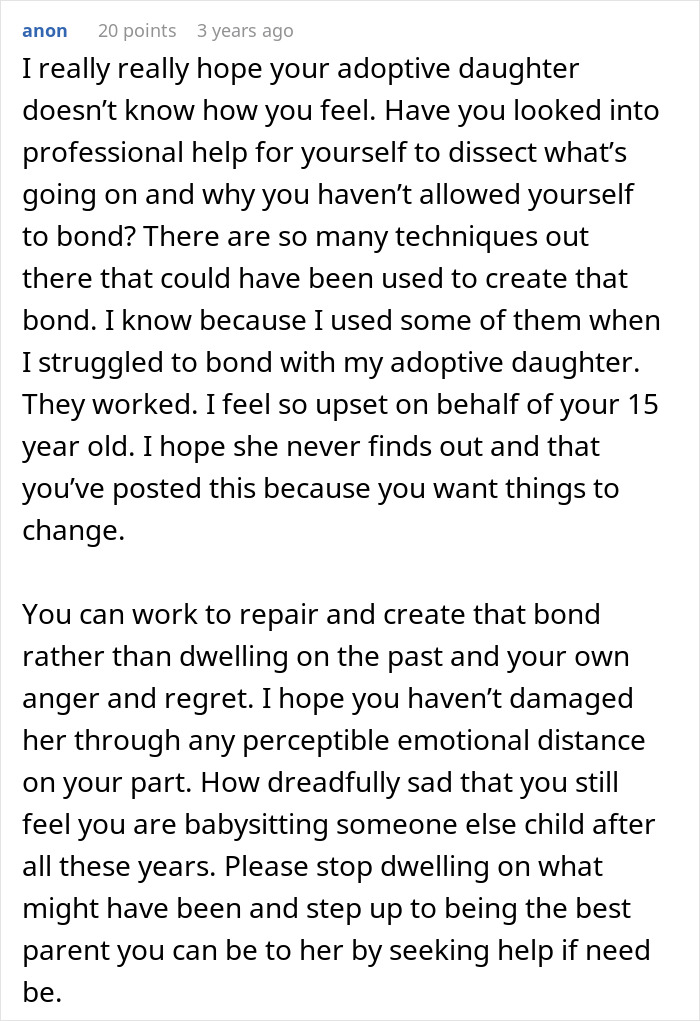

People from other corners of the internet shared their own reactions

